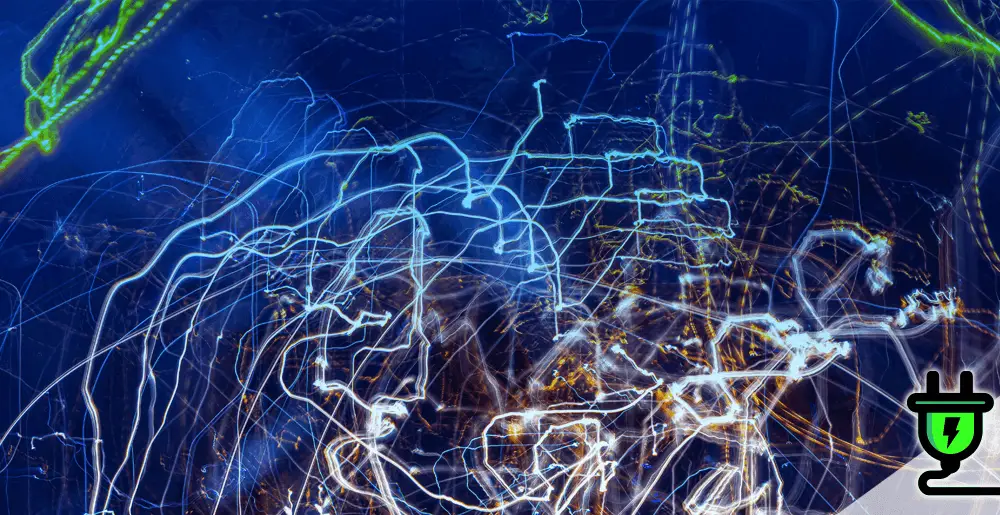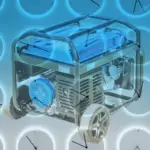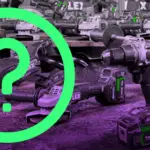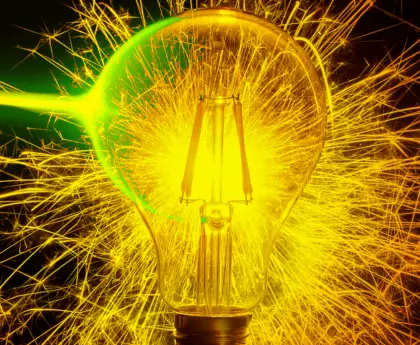A portable generator can be a lifesaver when the power goes out in your area, but you might be wondering, what happens to a portable generator when the power comes back on? Is this likely to damage your expensive equipment and lead to you needing to replace it?
A portable generator should not be wired directly into your home power system, or it might be seriously damaged when the normal source of power is restored. Instead, set your generator up independently and use a suitable adapter to transport power from your generator to your appliances.
If you own a portable generator, you know the feeling of relief and security it brings when there’s an unexpected power outage. But have you ever wondered what happens to your trusty little engine when the power comes back on?
We’re going to explore that, as well as other important considerations related to owning and operating a portable generator so that you can have peace of mind knowing that your reliable power source will continue running smoothly!
We’ll use this article to explore whether you can plug a portable generator directly into your main house’s power, and what happens to a portable generator when the power comes back on.
Let’s dive in!
What Happens To A Portable Generator When The Power Comes Back On?
If your portable generator is wired into your home network and the power comes back on, there is a high risk that this will cause damage to your generator, the wires, or possibly other parts of the network.
Fact is, portable generators are not designed to take mains power.
Most people do not wire their portable generators up to their homes directly.
Instead, they run the generator in a separate structure, and then plug the appliances into it using an adaptor.
Can You Ever Wire A Generator Directly Into Your House’s Mains Power?
This is possible, but it is something that should only ever be attempted by an electrician. The electrician will ensure that the generator is wired up as safely as possible, minimizing the risk of damage, electrical fires, or other problems occurring.
If you have had an electrician wire up your generator, make sure you understand how this works and what you should do in the event of a power outage.
You will need to make sure you don’t turn on any breakers that need to be off.
You will also need to make sure you know how to safely reverse the connection once power has been restored to your home, so you don’t damage the generator.
Does a Portable Generator Turn Off When Power is Restored?
Contrary to popular belief, portable generators don’t automatically switch off when the power returns. In fact, they continue running until you manually turn them off or they run out of fuel.
This means that if you don’t switch your appliances back to the utility power source, they’ll continue to draw power from the generator.
It’s crucial to follow the manufacturer’s instructions and safety guidelines when using a portable generator to avoid any problems.
While some generators may have accessories that aid in automatic power transfer, this often requires extra equipment and setup beyond the standard portable generator.
When Running a Generator, How do I Know When The Utility Power is Back on?
When running a generator, you can determine if utility power is back by checking indicator lights, observing functioning appliances, or seeing if neighbors have power.
Just be sure to exercise caution when transitioning to utility power.
Conclusion: What Happens to a Portable Generator When The Power Comes Back on
The answer to “what happens to a portable generator when the power comes back on?” should be nothing if your generator is not directly connected. Or, if you have it wired up by a qualified electrician and followed their instructions, nothing at all.
In the case of incorrect wiring, the return of mains power could damage the generator and your wires.





